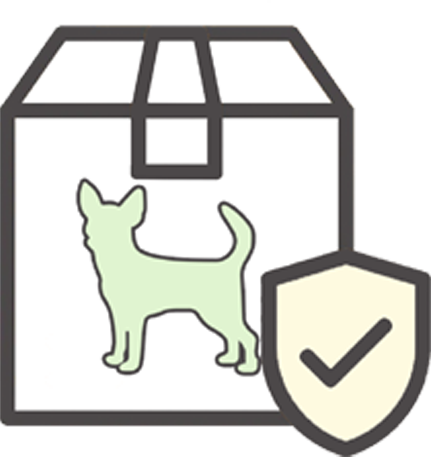Feeling Stressed? So Is Your Dog
Updated On: Friday, November 15, 2024 12:49:05 PM America/Los_Angeles
Given what’s going on in the world and the drastic life changes that have upended our normal routines, many of us are experiencing a tremendous amount of stress and uncertainty. Concerns about our health, the health of loved ones, jobs and economic security are all major life disruptions. And, our dogs can feel it too.
According to research, dogs’ stress levels are greatly influenced by their owners. Studies have found that when a dog owner is under extended periods of stress, say from depression, unemployment, or a global pandemic, the owner's dog will experience that same level of stress, too.
Why is that a problem? Stress in dogs can often lead to destructive behaviors (more on those, later). But more than an accident on the floor or a shredded pillow, high stress levels in dogs can negatively impact their immune system. That’s right, when canines experience long periods of anxiety, they’re more likely to get sick.
Our dogs can’t voice their feelings, so how do we know when they are stressed? Dogs are actually wonderful communicators, if you know what to look for. One of the most common signs of stress among dogs is destructive chewing. Chewing releases dopamine neurotransmitters that actually help your pooch relax, which is why they often double down on chewing whatever is in close range when they feel anxious. Other common signs of canine anxiety include: inappropriately eliminating urine or feces, shedding, panting, refusal of food, pacing or shaking, whining/barking, yawning, drooling, or licking excessively.
As humans, we share an intense emotional connection with our dogs. One of their “jobs” is to protect us, and help alleviate our pain and suffering through their unconditional love — which is why they bring us comfort in challenging life situations. But this comes at a cost. Our dogs can end up becoming an emotional punching bag. The good news is that we can help our dogs manage the stress they may be feeling, and part of that is taking steps to alleviate our own stress. Because our dogs feel everything we do, we must be honest about taking care of ourselves.
Photo by Roberto Nickson
Here are 4 ways you and your pet can decompress together.
Go Outside
Get out early and often for long walks, or just play fetch in the backyard. Leave your phone at home or turn it to “silent” so you can be attentive and present with your pup while you walk and play.
Teach Your Dog a New Trick
Set aside time each day to work with your dogs on training or tricks. Maybe your pooch needs a refresher on the basics (sit, stay, heel) or his leash manners could use some work? Performing even routine commands can distract a worried dog and provide a sense of normalcy.
Appropriate Chewing
Save your slippers, and provide your dog with different types of toys and long-lasting chews to help them alleviate stress — and get that positive dopamine kick — in a healthy, non-destructive way.
Find a Calm Space Together
If your dog is feeling anxious, it’s likely that he or she won’t leave you to find a safe place to relax on their own. Turn off distractions, and find a calm space in your home where you and your dog can snuggle together for some quality one-on-one downtime.
Dogs are incredible stress relievers, and they can do wonders for our mental health. But they can also mirror our feelings in a way that can ultimately hurt them if we don’t take steps to minimize their anxiety. Take time out of your day to focus on them without distractions, and you’ll be helping to manage their stress, as well as your own.
This article was written by Johnna Devereaux, CPN. Johnna is a Clinical Pet Nutritionist, the Director of Nutrition & Wellness for Bow Wow Labs, and Owner of Fetch RI.


